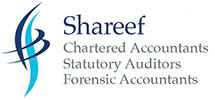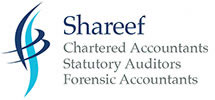HMRC and Companies House to scrap free filing services
From April 2026 companies won’t be able to file their tax returns and accounts using the HMRC and Companies House free-to-use service. What steps should companies take ahead of the deadline?

On 6 March HMRC and Companies House announced that their online filing services for corporation tax (CT) returns and accounts will be withdrawn with effect midnight on 31 March 2026. This will be a blow mainly for micro and small companies which are the chief users of the services. If you already use software to submit CT returns to HMRC and accounts to Companies House the withdrawal of the services won’t affect you.
Companies that are affected by the withdrawal of services will be allowed to submit accounts to CH on paper but will need to purchase software to file their CT returns. Both the government authorities have help pages on their websites to help companies find suitable software – you can view the GOV.UK version here.
After 31 March 2026 companies will only be able to view accounts and tax returns previously submitted using the free filing services if they take the following steps:
1. Go to the ‘track your submissions’ page and select the period you want to save a copy of your return for.
2. Select either the ‘HMRC’ or ‘Companies House’ submission link .
3. On the filing summary page, select ‘save your return in HTML’.
4. When prompted select where you want to save the file.
Related Topics
-
Should you agree to your customer’s self-billing request?
A customer wants to adopt a self-billing system, meaning they will issue invoices on your behalf and charge VAT or otherwise. Can you refuse their request and what are the risks of accepting?
-
Travel expenses - exempt or not?
You have several employees who travel from home or their workplace in the course of doing their job. Naturally, you meet the cost of their travel but should you be deducting tax and NI from the payments, or are they exempt?
-
Lending to a relative - avoiding the tax trap
Your daughter needs financial help to get her company started. You’ve agreed that your company will lend her the money. Your accountant says that this will trigger a tax charge. What is the charge and how can you legitimately dodge it?



 This website uses both its own and third-party cookies to analyze our services and navigation on our website in order to improve its contents (analytical purposes: measure visits and sources of web traffic). The legal basis is the consent of the user, except in the case of basic cookies, which are essential to navigate this website.
This website uses both its own and third-party cookies to analyze our services and navigation on our website in order to improve its contents (analytical purposes: measure visits and sources of web traffic). The legal basis is the consent of the user, except in the case of basic cookies, which are essential to navigate this website.